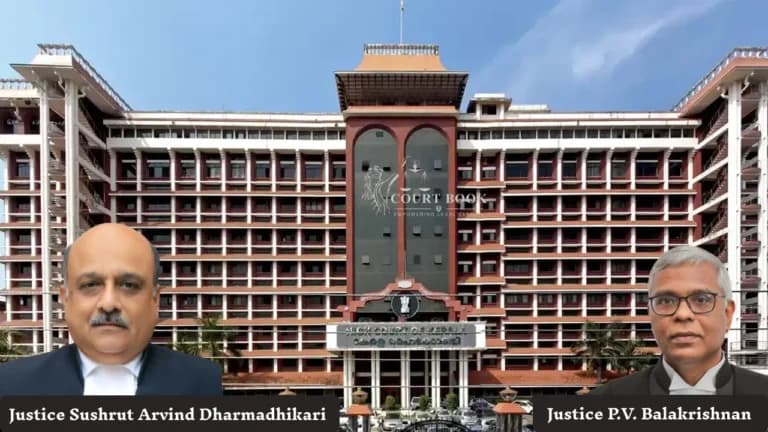The Kerala High Court has dismissed a writ appeal filed by Deepa Rani M, who challenged a 2008 judgment after a staggering delay of 4,133 days-nearly 11 years. The division bench comprising Justice Sushrut Arvind Dharmadhikari and Justice P.V. Balakrishnan held that such an extraordinary delay could not be condoned without a convincing explanation.
The bench, while hearing W.A. No. 1936 of 2019, observed that judicial discretion under Article 226 of the Constitution cannot be stretched endlessly to accommodate negligent litigants.
Background
Deepa Rani, a resident of Pathanamthitta district, had earlier filed a writ petition before the High Court in 2008, which was dismissed by a single judge. The matter involved service-related issues in the Department of Homeopathy and the Public Service Commission (PSC).
According to the appeal, the petitioner applied for a certified copy of the judgment in July 2019, more than a decade after it was delivered. Her counsel, Adv. Rajesh K. Raju, argued that the delay was due to illness and financial constraints, which prevented her from hiring legal representation earlier.
However, the State and the Kerala PSC opposed the plea, pointing out that the petitioner’s reasons were vague and unsupported by credible evidence.
Court's Observations
The division bench began by acknowledging the established position of law - that delay and laches can bar discretionary relief under Article 226. Justice Dharmadhikari referred to a series of Supreme Court precedents to underscore the principle that justice also demands vigilance, not slumber.
Citing Karnataka Power Corporation Ltd. v. K. Thangappan (2006) 4 SCC 322, the bench observed:
"Delay or laches is one of the factors which must be borne in mind when exercising discretionary powers. Courts may refuse relief if negligence or omission is apparent."
Further, the bench referred to M.P. Ram Mohan Raja v. State of Tamil Nadu (2007) 9 SCC 78, highlighting that there can be no fixed rule to condone delay, but the justification must be persuasive.
"A person who sits tight over his rights for years cannot later seek judicial sympathy," the court quoted.
The judges emphasized that courts are not meant to resurrect cases that litigants themselves have abandoned through inaction.
"Even when fundamental rights are involved," they said, "the Court’s discretion must be exercised judiciously and not mechanically."
The bench also cited Shiv Dass v. Union of India (2007) 9 SCC 274, where the Supreme Court held that belated petitions must normally be dismissed unless extraordinary circumstances exist.
In Deepa Rani’s case, the High Court noted that she neither acted with diligence nor produced sufficient proof of the alleged illness that prevented her from appealing earlier.
The Decision
After a detailed hearing, the bench found no plausible or satisfactory explanation for the 11-year delay. The judges said the appellant’s claims lacked documentary evidence strong enough to justify such a massive lapse of time.
"The delay is enormous - more than 4,000 days - and the reasons cited are far from convincing," the bench remarked. "We see no justification to grant indulgence to the appellant."
Consequently, the court rejected the condonation of delay application (C.M. Appl. No. 2 of 2019) and dismissed the writ appeal (W.A. No. 1936 of 2019).
In its closing words, the judgment reiterated the need for litigants to act promptly:
"Courts cannot rescue those who sleep over their rights. Vigilance is the essence of justice."
With that, the matter was laid to rest - one more reminder from the judiciary that legal remedies, though open, are not timeless.
Case Title: Deepa Rani M vs The State of Kerala & Others
Case Number: Writ Appeal No. 1936 of 2019
Judgment Date: 17 October 2025 (Friday)















